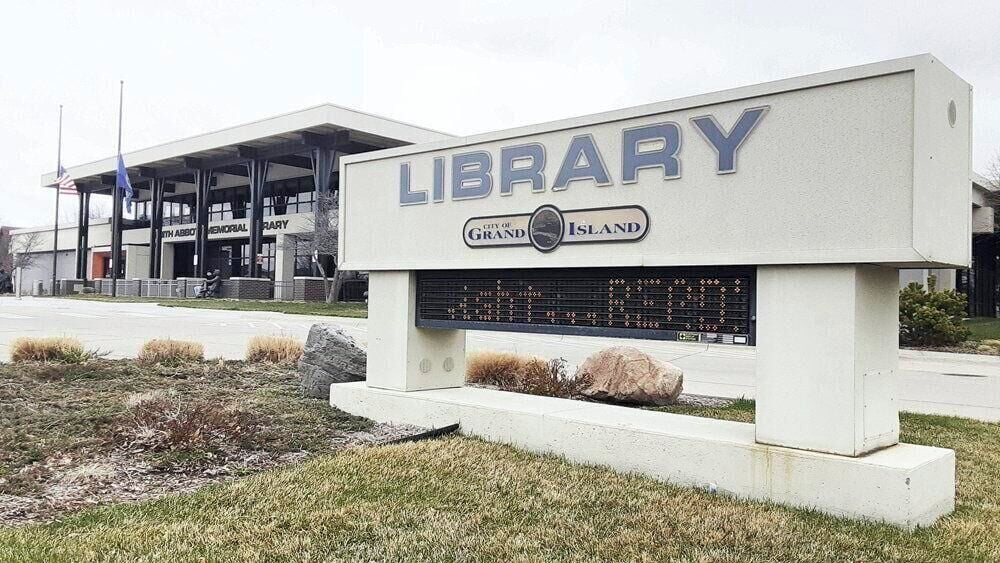In this edition of Author Talks, McKinsey Global Publishing’s Raju Narisetti chats with John Koenig, author of The Dictionary of Obscure Sorrows (Simon & Schuster, November 2021), about words and the power we give to them. Koenig shares a few of his original definitions, as well as the lessons he has learned in his pursuit to express in words the metaphysical human experience, which remains largely undefined. An edited version of the conversation follows.
How do you go about coming up with a new word?
It’s just a matter of diving into the research and looking for something that speaks to me, a hook. Often, it starts with a Wiktionary, the dictionary that’s run by the Wikimedia Foundation. The advantage there is that they have translations of a ton of words in different languages: Icelandic, Finnish, and Greek—some of my favorites— and a ton of other languages from around the world. You can get a sense of how many ways there are to express things in language.
Then I start with a root word. For example, “immerensis,” which is the feeling that you don’t understand why someone loves you. As hard as you may try to wrap your mind around the idea, it’s impossible to understand. I found the Latin root immerens, which means undeserving, and expanded it from there to “immerensis”. Once I find a hook like that, I can then dive into real dictionaries in those languages and try to piece something together in a creative way. But often, that’s not quite enough, and I have to get creative in other ways.
There’s a lot of wordplay involved. I have another definition, “tichloch,” which is the feeling that you don’t know how much time you have left on this earth. That one is actually an acronym for “the insatiable crocodile hunts what’s left of Captain Hook,” a reference to Peter Pan. The way it’s pronounced (tick lock) refers to the word as well. I can get pretty deep into the wordplay nerdery.
How do you make sure the word you create doesn’t already exist?
The first step in my process when I come up with a feeling [that I want to define] is to try to make sure that there isn’t already a word for it. There frequently is because a lot of languages around the world are really rich in their vocabularies. There’s a Japanese word, mono no aware, which is a sense of the transience of things and how beautiful that can be, or ubuntu, which means “I am because we are.” That's a universal concept.
Sometimes the work is already done, but language is limitless. We can always expand the palette. There are lots of synonyms that are redundant, so sometimes I decide, “You know what? It’s worth it. I’m going to try to define my own take on transience.” That’s the last definition in the book. I called it “tiris,” which is the awareness of the impermanence of absolutely everything, the comfort of that, and also how disturbing that thought can be. “Tiris” is derived from Tír na nÓg, which in Irish folklore is the land of everlasting youth and beauty.
What does a ‘real’ word even mean?
I’m often asked if these words are real; that’s been the dominant question I have gotten from readers. And my answer has evolved over time. Initially I’d say, “Well, no, of course they’re not real. I just made them up. You’re not going to find these words in any other dictionary.” But over the years [something else] occurred to me. I defined a word called “sonder,” the awareness that everyone around you is the main character of their own story, but to you they’re just extras in the background. Sonder caught on in a way that none of the others have. Often, I’ll run into sonder being used in earnest online, and I’ve even overheard it being used in conversation at cafés.
That changed everything for me because we usually tend to accept the words that we are given in life. The words we use to build our lives were handed to us in the crib or picked up on the playground. Once you realize that, you realize all of our words were basically made up. All of them. The word “robot” didn’t exist until someone made it up, and now that’s part of our parlance. Dr. Seuss invented the word “nerd” because he needed a rhyme.
We allow our words to define us, but I think the natural order of things is that we define words. We imbue them with meaning. We pour ourselves into them. That is how it should be. We’re the ones that mean something. Ultimately, all words are made up.
We don’t tend to question the reality of those words because they become part of the architecture of our lives. If anything, I think it is a little bit of a problem that we take words too seriously. We allow our words to define us, but I think the natural order of things is that we define words. We imbue them with meaning. We pour ourselves into them. That is how it should be. We’re the ones that mean something. Ultimately, all words are made up.
Despite what dictionaries would have us believe, is this world still mostly undefined?
I truly believe that. Not just in emotion but in language in general. There are certain parts of the world that have been defined quite well, like physical and visible reality—the tangible stuff around us that was named back when we were still cavemen sketching on walls.
Some of the first things that we would have come up with words for were bison herds, hunting strategies, spears, and all those physical things. That was by necessity. The really deep parts of ourselves, the emotions, would have to come later. It would take great effort to actually extract some of those things and find the commonalities between us, but I sincerely believe that nobody is alone in how they feel. There are no emotions in this book or anywhere that are only ever felt by one person.
I sincerely believe that nobody is alone in how they feel. There are no emotions in this book or anywhere that are only ever felt by one person.
Typically, it’s a matter of going the long way around and trying to [dredge up] these buried objects from the bottom of a very muddy lake. That’s what it often feels like when you’re trying to express an emotion, so there’s a lot of space for language to expand in terms of the intangible things, the metaphysical, the nonphysical. That’s the most exciting part of this period in history, when it seems that we have, just in the last 200 years, discovered each other’s vulnerability and our own humanity. Now is the time to define the world as we see it, and it’s a far more complex, multifaceted, and delicate world.
What can you tell us about the word ‘OK’?
According to linguists, “OK” is the most commonly understood word in the world. One would naturally assume that out of all the words, that surely must be the most real one we have. But then you look into its origins. It emerged in 1840, and over the next couple of decades it slowly started to take over, almost like an early meme. But nobody really knows what those two letters are supposed to stand for. It could have been a fad in Boston in 1840. It could stand for “all correct,” if both of those words were misspelled [as “oll korrect”]. It could be from a presidential campaign in 1840, or it could have been borrowed from one of a dozen other languages around the world.
That’s the most exciting part of this period in history, when it seems that we have, just in the last 200 years, discovered each other’s vulnerability and our own humanity. Now is the time to define the world as we see it, and it’s a far more complex, multifaceted, and delicate world.
We don’t know what “OK” really means, even though it is the most real word we have. And if that’s true of the most real word we have, then the dominoes start to fall as to the legitimacy of language. There’s something empowering about how the mighty can fall. It’s a reminder that all words are made up, and they don’t need to have any more meaning than we give them. We’re the ones who make them real. I think of words as basically no more or less real than constellations in the sky: they’re useful to a fault. Orion exists because we say it does, but it doesn’t necessarily mean anything.
In many other cultures they connect the dots very differently, and it’s a beautiful thing. It’s up to us to connect the dots however we want and to discard the patterns that previous generations have given us. Take words like love, for example, which perhaps are now too broad and hard to pin down because they mean too many different things. If you try to cut them out of your vocabulary or think deeper about them and go the long way around, I think it can be a very empowering thing.
What are some of your favorite words?
Nyctous (adjective; NIC-tiss)
Feeling quietly overjoyed. To be the only one awake in the middle of the night. Sitting alone with a laptop and a cup of tea. Strolling down the center line of an abandoned street. Taking in the world like an empty theater between productions. Stripped down to a simple black box hoping to be whatever you wanted to be. “Nyctous” derives from Nyctocereus, a genus of cactus that blooms only at night.
Kerisl (noun; KER-ile)
The sorrow of imagining the wealth of knowledge forever lost to history. Knowing we’ll never hear the language of the Etruscans, the battle cry of the Sea Peoples, or the burial chants of the Neanderthals. We’ll never read any more than a fragment of the works of Blake, Sappho, Aristotle, or Jesus, or enjoy the untold treasures of so many burned libraries, forgotten oral traditions, and unrecorded songs, any of which might have made up the cornerstone of the canon that we’d all be able to quote by heart and couldn’t imagine living without.
“Kerisl” is a contraction of Kerguelen Islands, which are equidistant between Australia, Antarctica, and Madagascar. It is [what remains of] a sunken microcontinent that was lost 20 million years ago. It was once three times the size of Japan, covered in dense forests, nameless animals, and possibly even people that we will never know existed. It’s all just lost between the waves.
Suerza (noun; swERR-zuh)
A feeling of quiet amazement that you exist at all. A sense of gratitude that you were even born in the first place, that you somehow emerged alive and breathing despite all odds, having won an unbroken streak of reproductive lotteries that stretches all the way back to the beginning of life itself. “Suerza” is from the Spanish suerte, which is luck, and fuerza, which is force. It’s basically luck–force.
Hem-jawed (adjective)
Feeling trapped inside your own language. Struggling to shake away the baggage weighing down certain words. Unable to break out of its age-old structures and melodies, frustrated that the scattering of verbal pigments on its palette could never quite capture the colors in your head. “Hem-jawed” is from hem, which is an attempt to clear the throat, and jaw, which means coarse babble.
Povism (noun; POVE-ism)
The frustration of being stuck inside your own head, unable to see your face or read your body language in context, only ever guessing how you might be coming across, which makes you think of yourself as a detached observer squinting out at a lushly painted landscape. But everyone else you’ve seen is woven right into the canvas. “Povism” is from point of view and ism.
Kenopsia (noun; ken-OPP-see-uh)
The eeriness of places left behind. You can sense it when you move out of a house, noticing just how empty a place can feel. Walking through a school hallway in the evening, an unlit office on the weekend, or fairgrounds out of season. [Such places] are usually bustling with life but now lie abandoned and quiet. It’s easy to forget that most of your memories happened in places that are still around, the walls mostly unchanged, carrying on in your absence. The world you once knew and the people you still remember have long since moved on, replaced by so many others who have passed through these doors.
It’s almost impossible to imagine while you’re still there knowing abstractly that the crowds will soon be gone, the lights shut off, the music silenced. If you spend enough time in a place, it becomes infused with a certain meaning, with specific memories soaked deep into every corner of the room. It’s hard to imagine it could ever mean anything else. But soon enough there will come a day when you pack up your things and walk through your house one last time, looking slowly around the rooms, thinking back on everything that happened here, which makes it feel not just empty but hyper-empty, with a total population in the negative, whose inhabitants are so conspicuously absent they glow like neon signs.
Not a day after you leave it will become someone else’s new home, a blank canvas they’ll fill up with their own memories, burying the life you built in a fresh coat of paint, leaving nothing but echoes of what was once here. Maybe that’s why we want to believe in ghosts. Maybe it’s just a fantasy, a fantasy that our memories are so powerful they’ll leave a mark on the wall that would mean something to someone else and can’t just be painted over. We just want to mark our time here, to keep the rooms filled and the memories alive. If our houses ever feel haunted, it will be because we’re haunting them ourselves, trying to revisit all the places we once knew. As if there was something still there for us, something we forgot. As if there were ever such a thing as unfinished business. “Kenopsia” derives from the ancient Greek keno, which is emptiness, and opsia, which is seeing: seeing emptiness.





